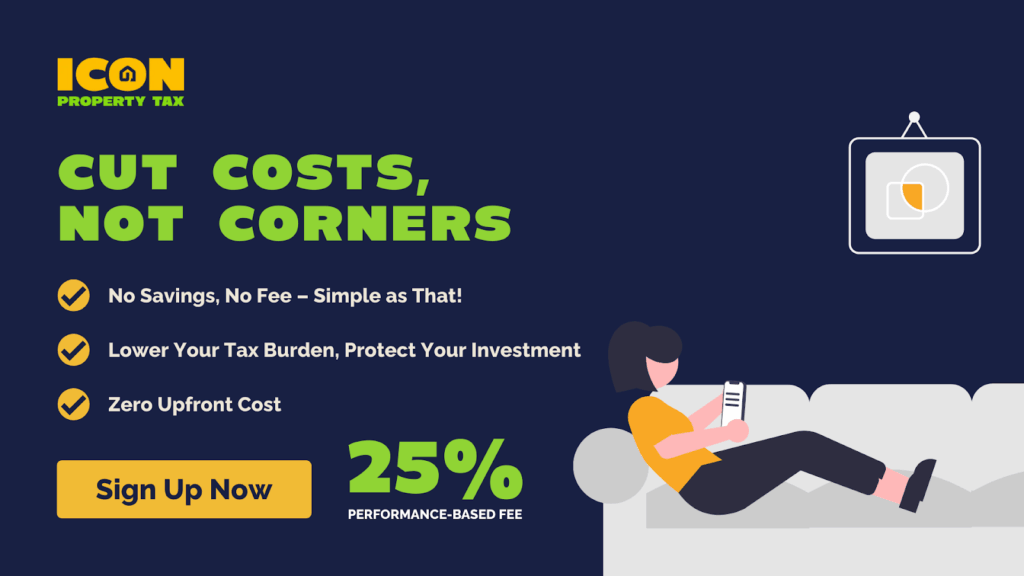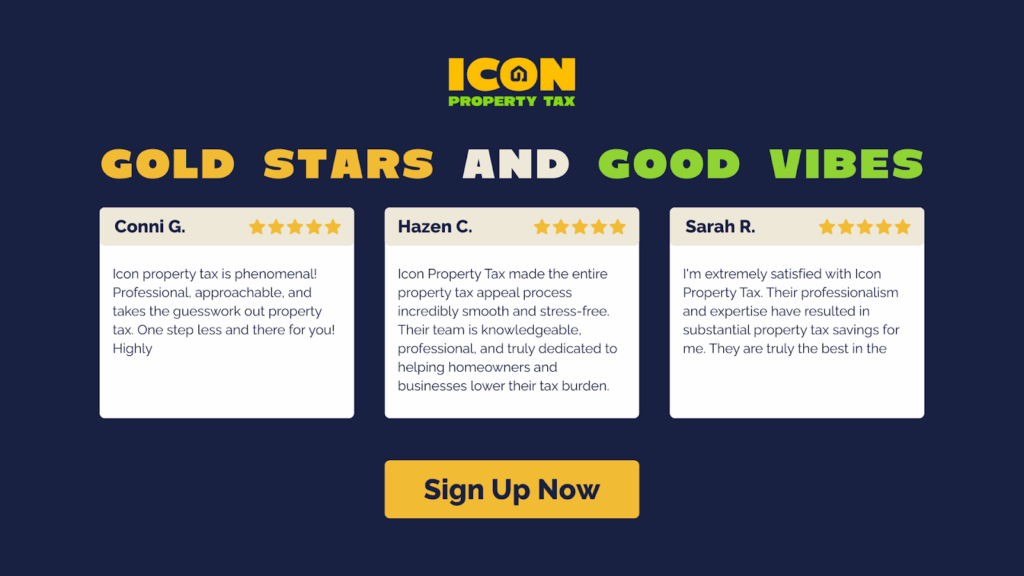Wilson County, TN Property Tax: How Assessments And Bills Are Calculated
September 14, 2025
Key Takeaways:
- Property Tax Structure: Wilson County property tax bills are based on assessed value and local millage rates. Both factors directly determine your annual obligation.
- Appeal Opportunities: Inaccurate assessments can inflate your tax bill, but you have the right to appeal. Filing on time is key to correcting overcharges.
- Deadlines and Payments: Tax bills in Wilson County are typically due by the end of February. Missing deadlines can lead to penalties, interest, and even property tax sales.
Does your Wilson County property tax bill feel higher than it should be? You’re not imagining things. Every year, thousands of property owners are hit with assessments that don’t quite match market reality, and the result is an inflated bill that quietly drains your investment.
We’re Icon Property Tax, and we’ve built our reputation on fighting back when tax assessments miss the mark. With over $100 million saved for clients, zero upfront fees, and a 25% performance-based model, we don’t charge a dime unless you save. Our trusted local tax agents have over 30 years of combined experience, and we tailor every appeal to give you the strongest shot at real savings.
In this piece, we’ll walk you through how Wilson County property tax assessments and bills are calculated, step by step. You’ll learn where the numbers come from, how to read your bill, and when it’s time to appeal. Knowledge is your first tool in lowering your tax burden; we’re here to help you use it.
Understanding Property Taxes In Wilson County
Property taxes in Wilson County are more than just another annual bill; they directly impact your bottom line, whether you’re a homeowner, landlord, or investor. These taxes help fund vital local services like schools, emergency response, and infrastructure. But despite their importance, many property owners are left in the dark about how their bills are actually calculated.
Wilson County uses a combination of assessed property values and local tax rates to determine your total obligation. While this formula seems straightforward, the real issue often lies in the initial valuation of your property. If your assessed value doesn’t reflect your property’s current market or physical condition, you could be paying more than you should.
This is where Icon Property Tax steps in to advocate for you, making sure you don’t overpay based on a flawed assessment. With no upfront fees and a no-savings, no-fee pledge, we build tailored appeals that challenge inaccurate valuations. Our team of local experts understands the nuances of Wilson County’s tax system and fights to protect your investment.

How Property Value Assessments Work
In Wilson County, property taxes start with your assessed value; the value the county believes your property is worth for tax purposes. This value is determined by the Wilson County Assessor of Property, who evaluates real estate across the county on a four-year reappraisal cycle. That means your property’s taxable value may not reflect recent market trends unless you take action.
To calculate your assessed value, the county begins with your appraised market value, then applies a percentage based on the property type:
- 25% for residential
- 40% for commercial
- 30% for industrial or utility properties
These percentages are set by Tennessee state law. The result is your assessed value, which forms the foundation of your annual tax bill.
But here’s the problem: appraisals often overlook major changes, market shifts, or property-specific issues. That’s why understanding how your value was determined and whether it’s accurate is critical.
Icon Property Tax is here to help you review that valuation and fight back when it’s off the mark. Our team knows how to challenge inflated assessments and build a case for fairer taxation, without upfront costs or risk.
Wilson County Tax Rates And Millage Explained
Once your property’s assessed value is determined, the next piece of the puzzle is the local tax rate, often called the “millage rate.” This rate transforms your assessed value into an actual dollar amount owed. To fully understand your property tax bill, you need to know how these rates work and who sets them:
What Is A Millage Rate?
A millage rate represents the amount of tax charged per $1,000 of assessed value. For example, a millage rate of 2.000 means you’ll pay $2 for every $1,000 in assessed value. This number might look small, but it adds up fast when applied to real estate worth hundreds of thousands of dollars.
Who Sets The Property Tax Rate?
In Wilson County, tax rates are determined by local governing bodies such as the county commission, city councils, and school boards. Each jurisdiction, county, city, and sometimes special districts, can levy its own millage rate. That means your total property tax rate depends on county taxes and where your property sits within city limits or special districts.
How Millage Applies To Your Assessment
To calculate your property tax bill, the county multiplies your assessed value by the combined millage rate for your location. For example, a $100,000 assessed value at a 2.5 millage rate would result in a $2,500 tax bill. Even small shifts in rate or value can have a significant impact, especially on commercial or investment properties.
Rate Changes And Local Budget Needs
Tax rates aren’t static; they can change each year based on local budget needs and public votes. School funding, infrastructure projects, and emergency services can all influence whether millage rates rise or fall. Understanding these dynamics can help you anticipate changes in your tax bill year to year.
How Your Property Tax Bill Is Calculated
Once you understand your assessed value and local millage rate, calculating your Wilson County property tax bill becomes a matter of simple math, but there are a few critical steps to get it right. Knowing exactly how your bill is structured helps you spot errors, identify overcharges, and take action when something doesn’t look right:
Step 1: Determine Your Assessed Value
Your assessed value is calculated by applying the state-mandated assessment ratio to your appraised market value. For example, if your residential property is appraised at $300,000, your assessed value would be 25% of that, or $75,000. This number becomes the taxable base used in the next step.
Step 2: Apply The Total Millage Rate
Next, the county applies your local millage rate to that assessed value. If your property has a $75,000 assessed value and your local millage rate is 2.2, your tax liability would be $75,000 × 0.0022 = $165 annually. Keep in mind that if your property falls within city limits or special districts, multiple millage rates could apply.
Step 3: Factor In Any Applicable Exemptions
Tennessee offers various property tax exemptions, such as those for seniors, veterans, or disabled homeowners. While Icon Property Tax does not file exemption applications, we do review them with clients to help avoid mistakes or missed savings. If you qualify, an exemption could reduce your assessed value and, in turn, your final tax bill.
Step 4: Understand Fluctuations Year Over Year
Your tax bill can change from year to year, even if your millage rate stays the same. A market-wide reappraisal, a major home renovation, or the expiration of a temporary exemption can all increase your assessed value. Reviewing your assessment annually helps you stay ahead of unnecessary spikes.
When To Take Action
If your tax bill feels out of line with your property’s condition or comparable values in your area, it might be time to appeal. Over-assessments happen more often than you think and directly inflate your tax obligation. That’s where Icon Property Tax steps in to fight on your behalf.

Tips To Reduce Your Wilson County Property Tax
While you can’t control tax rates or reappraisal schedules, there are several smart strategies property owners in Wilson County can use to lower their annual tax bills. Reducing your property tax starts with knowledge, followed by action and often, a well-supported appeal. Here are proven ways to take control of what you owe:
Review Your Assessment For Accuracy
Start by carefully reviewing your property assessment. Check for errors in square footage, number of bathrooms, condition, or classification; even minor mistakes can lead to inflated values. If something doesn’t match your actual property, you may have a strong basis for an appeal.
Compare With Similar Properties
Look at how properties similar to yours are assessed in your neighborhood or zip code. If homes with comparable size, age, and features are valued lower, that’s a red flag. Discrepancies like this are often the clearest path to a successful appeal.
Keep Documentation Ready
Photos, inspection reports, repair estimates, or property listings can all support your case during an appeal. The more data you can provide to show your property’s real condition or value, the stronger your position. This is especially helpful if your property has been damaged or over-improved compared to others nearby.
File An Appeal At The Right Time
Wilson County allows property owners to file appeals during a specific window each year, typically shortly after assessment notices are mailed. Missing that deadline could lock in an inaccurate value for another year. Be proactive and mark the appeal period on your calendar as soon as it’s announced.
Let Icon Property Tax Handle The Heavy Lifting
This is where Icon Property Tax steps in to advocate for you. We handle the full appeal process, from analyzing your assessment to building a compelling case, with no upfront cost and a no-savings, no-fee pledge. Our local agents understand Wilson County’s unique market and appeal process, and we tailor every case to fight for fair taxation.

Final Thoughts
Property taxes in Wilson County play a vital role in supporting schools, infrastructure, and community services, but that doesn’t mean property owners should accept inflated assessments without question. A clear understanding of how values are determined and bills are calculated gives you the power to spot inaccuracies and safeguard your investment. Fair taxation isn’t just about lowering costs but ensuring every property owner pays only their rightful share.
Read also:
- What Causes A Property Tax Reassessment (And How To Get Ready For It)
- Texas Property Tax Hotspots: Cities With The Highest And Lowest Rates
- How Property Taxes Work And What You Need To Know About Them
Frequently Asked Questions About Wilson County Property Tax
When are Wilson County property tax bills due?
Property tax bills in Wilson County are typically due by the end of February each year. Payments received after the deadline may incur penalties and interest. It’s best to confirm dates directly with the Wilson County Trustee’s office.
Can I pay Wilson County property taxes online?
Yes, Wilson County offers an online payment system through the Trustee’s office. Property owners can also pay by mail or in person if preferred. Online payments may include a small convenience fee depending on the payment method.
Are property tax rates the same across all of Wilson County?
No, tax rates vary depending on whether your property is within city limits or special taxing districts. For example, homes in Lebanon or Mt. Juliet may have city taxes in addition to county taxes. This layered structure impacts your final bill.
What happens if I don’t pay my Wilson County property taxes?
Unpaid property taxes can lead to penalties, interest, and eventually a tax sale of the property. The Trustee’s office has the authority to initiate proceedings to recover delinquent taxes. It’s important to address missed payments quickly to avoid escalating costs.
How do property improvements affect my Wilson County property tax bill?
Major improvements, such as adding a new room, garage, or pool, can increase your appraised market value. That higher appraisal results in a larger assessed value and, in turn, a higher tax bill. Even smaller upgrades may be factored in during reassessment years.
Are there payment plans for Wilson County property taxes?
Yes, property owners who fall behind may be able to set up a payment plan through the Trustee’s office. These plans typically allow you to pay delinquent taxes in installments. However, penalties and interest continue to accrue until the balance is paid off.
Do rental properties in Wilson County have different tax rules?
Rental properties are taxed at the same assessment ratios as other residential or commercial properties. However, if the property is classified incorrectly, it can affect the tax amount owed. Reviewing your property classification is a smart step for landlords.
How can farmland be taxed differently in Wilson County?
Qualified agricultural, forest, or open space land may fall under Tennessee’s Greenbelt Law. This law allows property to be taxed based on its use value rather than its full market value, resulting in significant tax savings for qualifying landowners.
Where can I get a copy of my Wilson County property tax record?
Property tax records are available through the Wilson County Trustee’s office or online databases. These records show your assessed value, tax rate, and payment history. Having this information is essential if you’re reviewing your bill for accuracy.
Can property tax bills in Wilson County be deducted on federal taxes?
Yes, property owners may be able to deduct property taxes paid in Wilson County on their federal income tax returns. This falls under the state and local tax (SALT) deduction, subject to IRS limits. Consulting a tax professional can help you determine eligibility.

